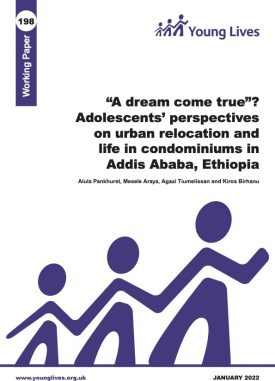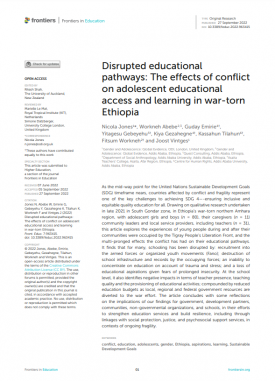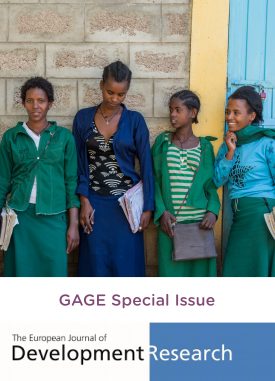Relocation from inner cities and rehousing in suburbs is becoming an increasingly prevalent issue in developing countries. However, there is limited evidence about the perspectives of adolescents and most studies are from western contexts. In addressing this gap this study tracked adolescents before and after they were relocated over an eight-year interval from the centre of Addis Ababa to the outskirts, mainly to government-sponsored condominium housing. The paper also compares the views of those who were relocated with those who stayed behind. The paper argues that condominium housing enabled low-to-middle-income households to become house owners, while the poorest could not afford the costs, and the richest preferred building their own houses. From the perspective of adolescents who were relocated the move led to better housing and improved sanitation. However, students faced difficulties in the first year commuting, and schools and health centres were considered better quality in the previous locations; markets and shops were initially less well developed in the condominium areas, and there were fewer recreation options, though pollution and safety were greater concerns in the old neighbourhoods. A significant majority of the adolescents (79%) felt that the changes were positive or mainly positive and soon adapted to the new social environment, though social ties were less strong than in their previous neighbourhoods. Those who moved had better internet access and there were gender differences in decision-making, leisure activities and spending, with girls having less freedom, somewhat compensated for by mobile phones and social media.
Suggested citation
(2022) ‘‘A dream come true’? Adolescents’ perspectives on urban relocation and life in condominiums in Addis Ababa, Ethiopia.’ Journal of Eastern African Studies. (https://doi.org/10.1080/17531055.2022.2135246)


